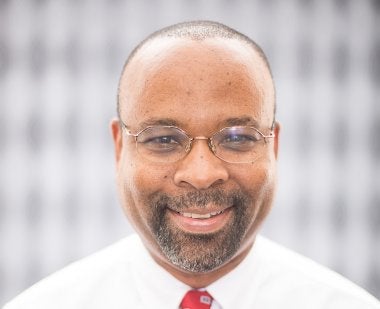
Marvin A. Titus, an associate professor of higher education at the University of Maryland College of Education, has been named one of the new members of the TIAA Institute Fellows Program.
Dr. Titus’ research focuses on examining cost-efficiency at public universities. He has been working on a project that looks at the extent to which cost-efficiencies are related to privatization, e.g. the extent to which schools rely on tuition, revenue from auxiliary enterprises (residence halls, dining services, book stores, etc.), and private grants.
“It’s very important for administration and policy makers to understand the uniqueness of public universities,” he said. “On one hand, there's a concern with regard to cost efficiency, but on the other, there is a need to recognize that public universities are serving the greater good of society. We can't always use the same criteria to judge the efficiency as we use for the for-profit private sector to judge the performance of public universities.”
Dr. Titus, who has a background in economics, initially began developing his research interest, he said, around students -- the extent to which they're successful, retention, and completion [graduation rates], looking at how institutional factors influenced these outcomes.
“Higher education is rather unique,” he said. “Students are both outputs and inputs in higher education. There really isn't strict comparison to the typical private sector firm.”
He points to the relationship between a school’s cost efficiency and its affordability for current and prospective students. From an economic standpoint, how much a company (university) spends or its operating costs has an influence on price.
“Theoretically,” he said, “if an institution is more cost efficient, tuition should be lower, or there should be more financial aid available. That makes the university more accessible.”
To examine cost efficiency, Dr. Titus looks at how institutions effectively use the resources available to them: How are they using their labor resources, faculty and staff? Are they using them in a way to maximize the output (number of degree completions, graduation rates, etc) while minimizing costs? “This can help determine overall efficiency of the university.”
Dr. Titus is a member in the Department of Counseling, Higher Education and Special Education at UMD. Prior to teaching at the University of Maryland, Dr. Titus was an assistant professor of higher education at North Carolina State University. He holds a Bachelor of Arts in economics & history, from the City University of New York, a master’s in economics from the University of Wisconsin at Milwaukee, and a Ph.D in Education Policy, Planning, & Administration from the University of Maryland.



